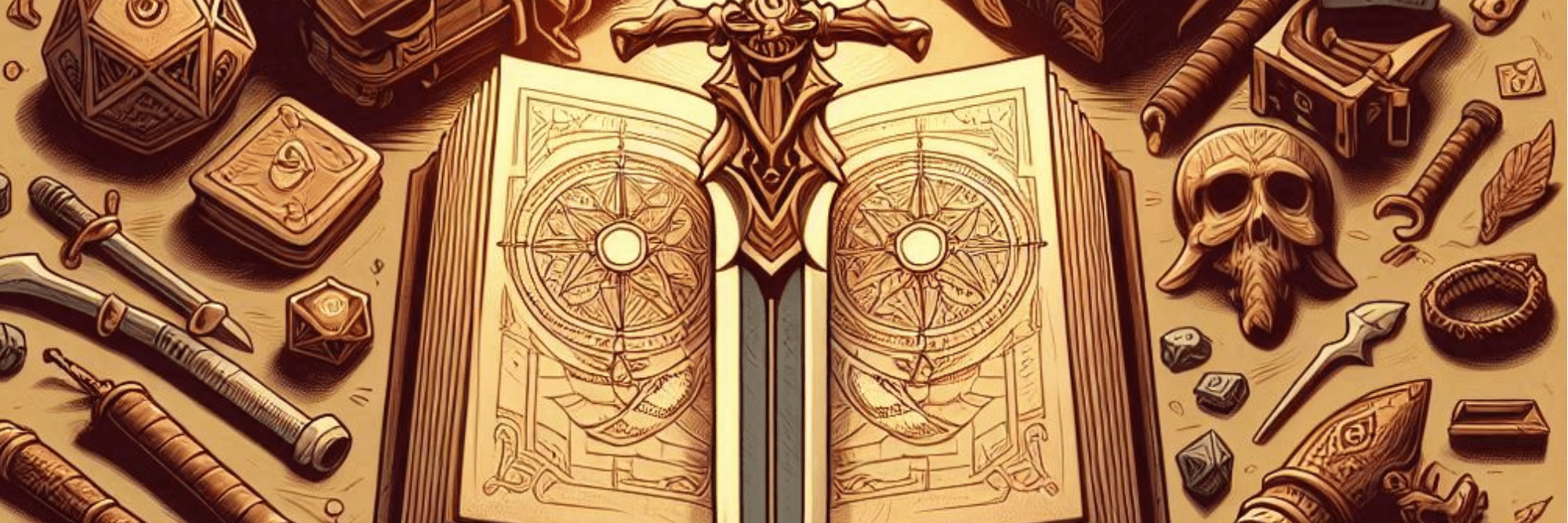What are the Best types of DnD Dice
In the vast world of Dungeons & Dragons, the choice of dice is more than just a practical decision—it's an opportunity to infuse your gaming experience with style, character, and flair. From traditional plastic to luxurious metal, each type of D&D dice offers its own advantages and drawbacks. In this guide, we'll explore the various types of D&D dice materials and help you navigate the pros and cons of each, empowering you to make an informed decision for your next gaming adventure.
Plastic Dice:
Plastic dice are the most common and affordable option for D&D players. Available in a wide range of colors and designs, plastic dice sets offer versatility and accessibility. They are lightweight, easy to transport, and suitable for players of all skill levels. However, plastic dice may be prone to wear and tear over time, with edges becoming chipped or numbers fading with repeated use.
Pros:
- - Affordable
- - Lightweight and easy to transport
- - Wide range of colors and designs
- Prone to wear and tear
- Less durable compared to other materials
Metal Dice:
For those seeking luxury and durability, metal dice sets are an excellent choice. Crafted from solid metal alloys such as zinc, aluminum, or brass, these dice offer a satisfying weight and exceptional durability. Metal dice are less prone to damage from regular use and provide a distinct tactile experience with each roll. However, they tend to be more expensive than plastic dice and may produce louder noise when rolled on hard surfaces.
Pros:
- Luxurious feel and durability
- Less prone to wear and tear
- Unique tactile experience
Cons:
- Higher cost
- Louder rolling noise
- Heavier (could be a pro for some)
- Requires a rolling tray to keep table surface safe
Resin Dice:
Resin dice are prized for their artistic designs and vibrant colors. Made from a combination of resin and pigments, these dice sets often feature intricate patterns, glitter, or embedded objects that add visual interest to your gaming experience. Resin dice offer a good balance between affordability and aesthetic appeal, making them a popular choice among players who appreciate craftsmanship and style. However, resin dice may be more fragile than plastic or metal dice and require careful handling to avoid damage.
Pros:
- Artistic designs and vibrant colors
- Good balance of affordability and aesthetics
- Unique visual appeal
Cons:
- Can be more fragile than plastic or metal dice
- Require careful handling to prevent damage
- Sharp edge resin can be a safety hazard for children
Wooden Dice:
Wooden dice offer a natural and rustic charm that appeals to many players. Crafted from various types of wood, such as maple, oak, or walnut, these dice sets exude warmth and character. Wooden dice are lightweight, eco-friendly, and environmentally sustainable, making them a favorite among environmentally conscious gamers. However, wooden dice may be less durable than plastic or metal dice and require regular maintenance to preserve their appearance.
Pros:
- Natural and rustic charm
- Lightweight and eco-friendly
- Environmentally sustainable
Cons:
- Less durable than plastic or metal dice
- Require regular maintenance
When it comes to choosing the best type of D&D dice for your gaming table, there's no one-size-fits-all answer. Each type of dice material offers its own unique blend of pros and cons, catering to different preferences and priorities. Whether you prioritize affordability, durability, aesthetics, or environmental sustainability, there's a perfect set of dice out there waiting for you. So consider your options carefully, weigh the pros and cons, and embark on your next epic quest with dice that reflect your style and personality.


